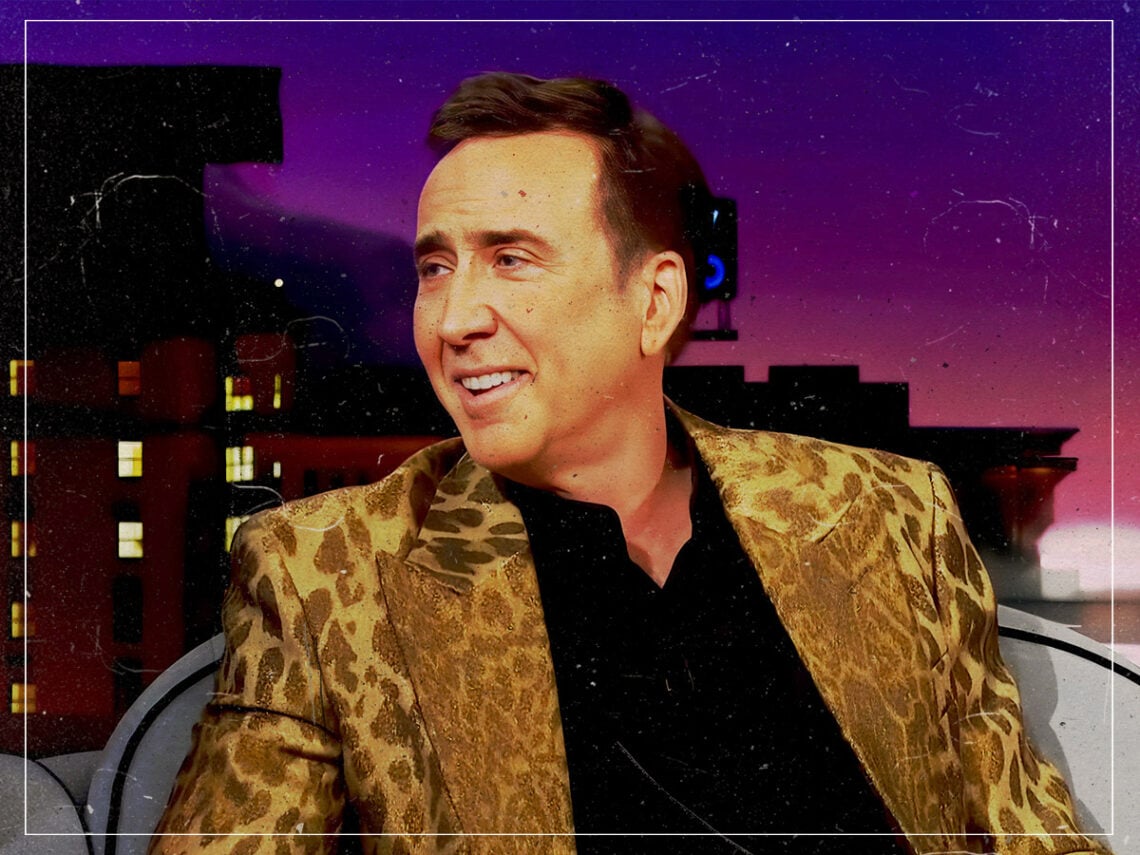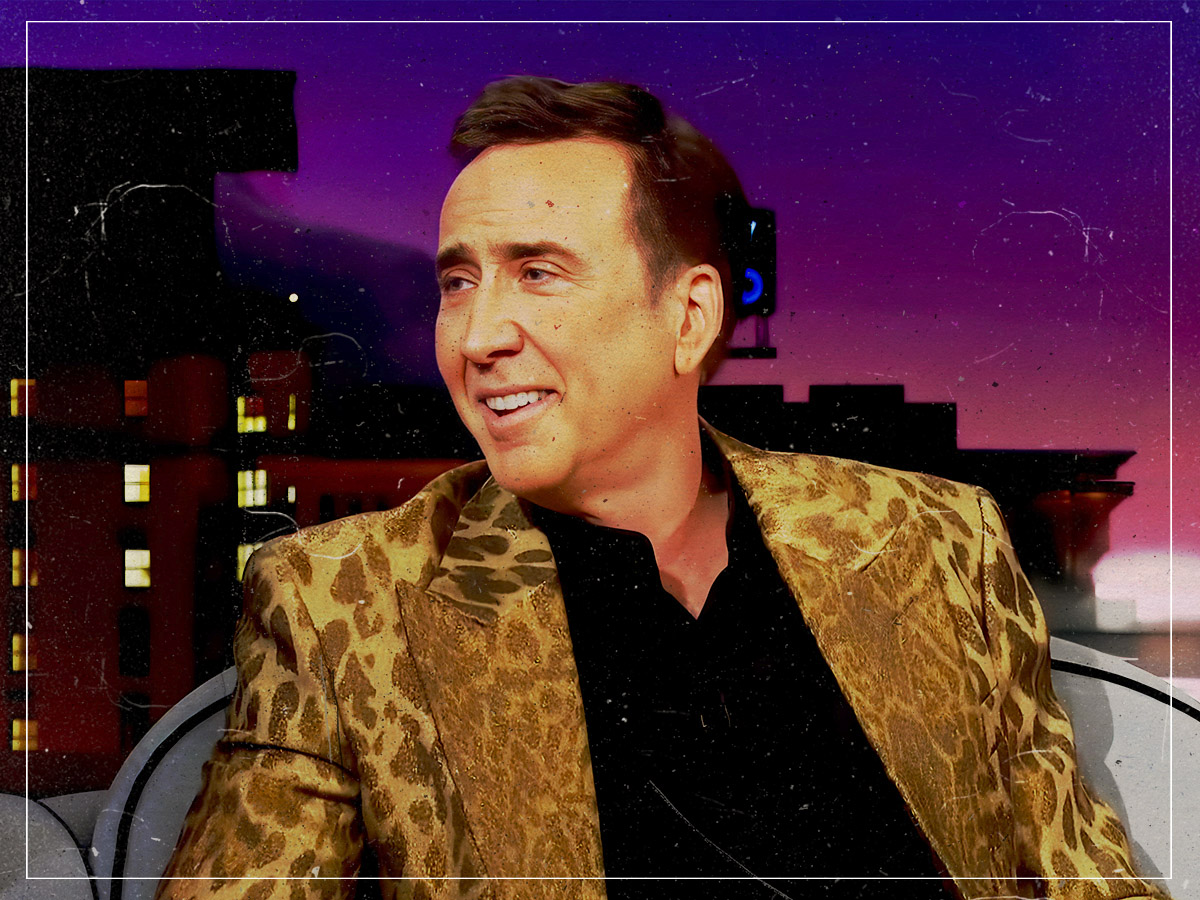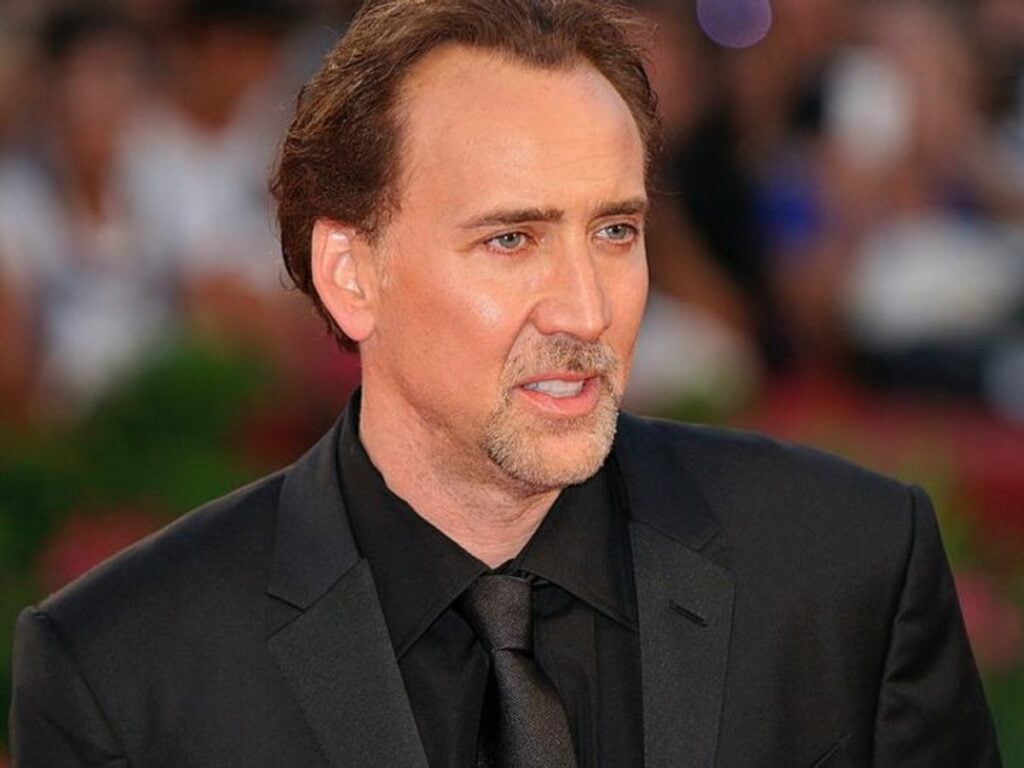
(Credits: Far Out / YouTube Still)
Fri 17 October 2025 20:22, UK
American film star Nicolas Cage has given Hollywood one of its most varied and engaging careers, with his onscreen appearances ranging from thrilling action flicks to panned Marvel adaptations to intense, surreal character studies. Cage is a member of the Coppola family, a widely acclaimed unit of filmmakers and performing artists, upholding one of cinema’s most treasured bloodlines.
A graduate of the UCLA School of Theater, Film and Television School, Cage has been acting since the early 1980s, moving into film production to welcome in the early 2000s. The star has gone on record stating he feels responsible for his own distinct manifesto of acting, which he cited as “Nouveau Shamanic,” and said, “at some point, I’ll have to write a book”.
Cage doesn’t want memes to be what people remember most about his contributions to the world of cinema, but when you’ve been as unhinged for as long as he has and won the plaudits to back it up, it’ll be hard to outrun that shadow. The actor has implied that he might only have a few more features left in the tank before exploring other creative avenues, but he’s already left behind one of the most fascinating legacies of any major star, which he’s accomplished by marching almost entirely to the beat of his own drum.
Cage has constructed this method of acting from a compiled list of his favourite films, with some presenting specific performances that he cites as significant to his craft and cinema as a whole. Cage shared five of his favourite movies with Rotten Tomatoes, expanding on his love for them by mentioning the visual direction and status in filmmaking.
Including book and play adaptations and cinematic landmarks, the actor opens his list with a classic period feature he brands as “really the reason why I became an actor in movies”. Elia Kazan’s East of Eden, adapted from John Steinbeck’s novel of the same name, stars Hollywood bad boy James Dean. The actor gives a performance that Cage said: “broke my heart; it was not like anything I’d experienced before, in terms of art, and I’d seen a lot of movies at that point”. The film tells a story of identity and adolescence as a young man vies for the affection of his religious father.
“I was 15, and I’d seen Bergman’s Seventh Seal and Fellini’s Juliet of the Spirits and Welles’ Citizen Kane — great films,” the actor explains. “But when I saw Dean in that, it really put the hook in me because I felt like him, and I knew then the power of film acting, and I knew then what I wanted to be, what I wanted to do to try to move people with motion pictures. So that’s why I have to put that on the list.”
Cage maintains a theme with the following entry on his list; Kazan’s A Streetcar Named Desire, a classic drama that tells the story of an unwell woman whose world unravels around her. “Yes, I admired Marlon Brando, and I know that he influenced James Dean and he really kind of changed the world of film acting with his naturalistic style,” Cage reveals. “But it was because of Vivien Leigh’s performance as Blanche DuBois that I would put that as one of my favourite movies.”
This adaptation of Tennesse Williams’ emotional play explores a damaged psyche, sisterhood and toxic masculinity, all under some sentimental and attentive direction on Kazan’s part. Cage cites Leigh’s performance as Blanche as “such a powerfully vulnerable, tragic performance that I have to put that on the top five because that movie held that performance.”
Moving on, Cage cites one of sci-fi’s most profound, revolutionary and staple contributions for his third spot, as the actor opts for a film that he describes as “ahead of its time”. Visionary filmmaker Stanley Kubrick’s 2001: A Space Odyssey narrates a voyage of astronauts who venture out to discover an alien monolith. Cage classifies this cinematic masterpiece that amazed audiences with its groundbreaking visuals as “enigmatic; it is so poetic … It remains a mystery to me, even today, where I can view it annually, three times a year, and still find something new in it.”
From one Kubrick classic to another, A Clockwork Orange is Cage’s fourth favourite choice. This controversial dystopian landmark documents the immoral antics of a sociopath called Alex, who spends his time terrorising innocent civilians in dystopian England. Immense controversy and criticism met A Clockwork Orange upon release due to its graphic depiction of sexual and physical violence. The main character’s joyous response also unsettled audiences, which allowed the initial emotional reaction to override the residing critical analysis of Kubrick’s layered narrative.
“Stanley Kubrick’s treatment of the subject of violence and the mystery of nature and to go against our natures and what is or isn’t necessary, and what is the true evil,” Cage provides his analysis of the film. “And all of these questions that came out of the absurdist and evocative film that is Clockwork Orange, again, is everlasting.”
Cage concludes his list with the American cinematic treasure The Wizard of Oz, the magical and colourful story of Dorothy Gale’s adventures in Oz. The actor claims that this MGM picture “is not like any other film,” proposing it reads as a “completely original experience, and it has stood up against the test of time.”
Cage adds: “That first introduction to colour film, that doorway sequence and going into Munchkin land — it’s just mind-blowingly beautiful.”
Nicholas Cage’s five favourite movies:East of Eden (Elia Kazan, 1955)A Streetcar Named Desire (Elia Kazan, 1951)2001: A Space Odyssey (Stanley Kubrick, 1968)A Clockwork Orange (Stanley Kubrick, 1971)The Wizard of Oz (Victor Fleming, 1939)
Related Topics


